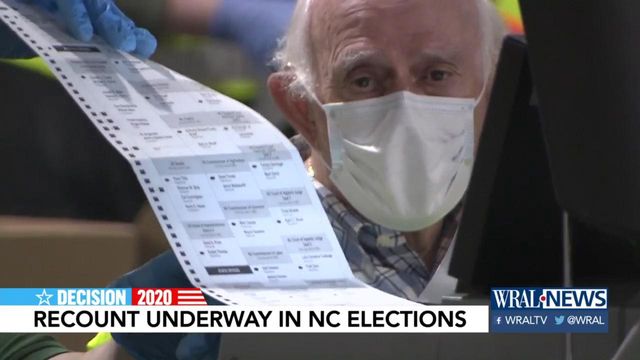What to expect in the NC Supreme Court justice recount
A political expert from Western Carolina University explains the process for recounting election ballots in North Carolina, and why the state Supreme Court race could turn out differently than others.
Posted — UpdatedAs of Thursday afternoon, preliminary election results showed Republican Paul Newby beating Democrat Cheri Beasley by 409 votes. Beasley is the incumbent who was appointed to the position by Gov. Roy Cooper in 2019, making her the first Black woman to lead the court.
Newby is a Supreme Court justice hoping to land in the chief justice seat. He won't be on the court at all if he loses the race.
How it works
State law says a statewide race is subject to recount if the margin of victory is less than 10,000 votes, or less than 0.5% of the votes cast.
During the recount, each county has officials feed every ballot back through their counting machines to double check their totals for the race. All 100 counties have to complete this process before the state elections board can certify the results.
Common errors
Recounts can find votes that were ineligible or eligible ballots that weren’t counted for some reason, said Chris Cooper, a political science professor at Western Carolina University.
“There can be normal computer errors. Just like when you type up an email and you’ve proofread it five times but there’s somehow still a mistake in there – the same kind of thing can happen with counting ballots,” Cooper said.
What to expect
Recounts don't often change the outcome of a race, Cooper said. North Carolina has had three statewide recounts in recent years, and none has changed the outcome of the race involved.
However, he said a change in the Beasley-Newby outcome is not entirely farfetched.
“If you take the 31 recounts that happened from 2000 to 2019 across the country – statewide recounts – they tend to shift on average about 430 votes, which is just barely more than the number of votes that are up for grabs in this chief justice race,” Cooper said.
Related Topics
• Credits
Copyright 2024 by Capitol Broadcasting Company. All rights reserved. This material may not be published, broadcast, rewritten or redistributed.






